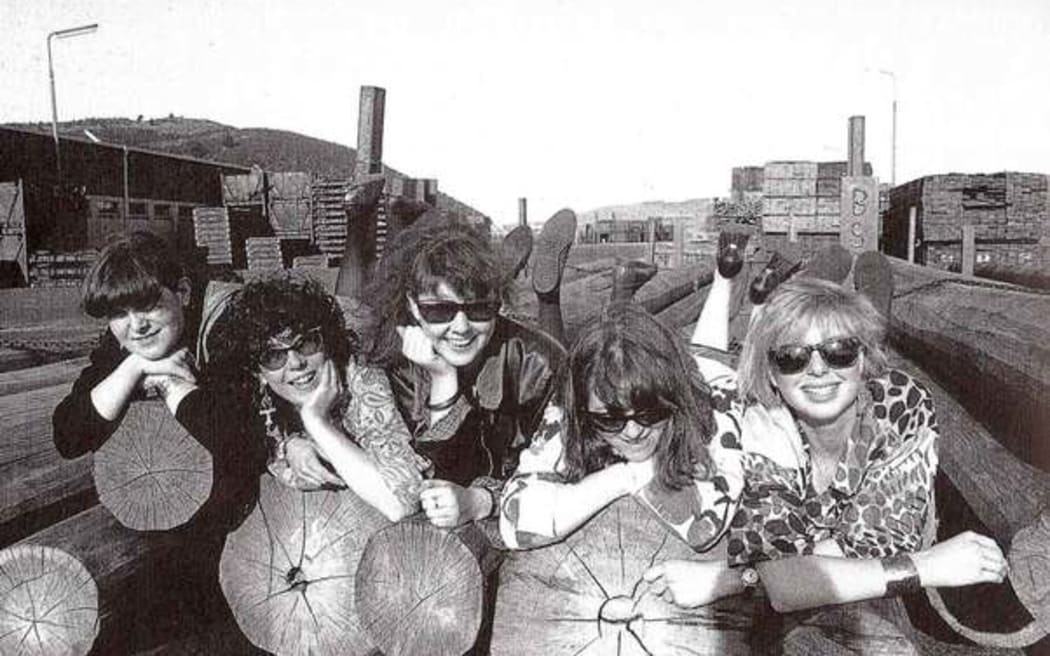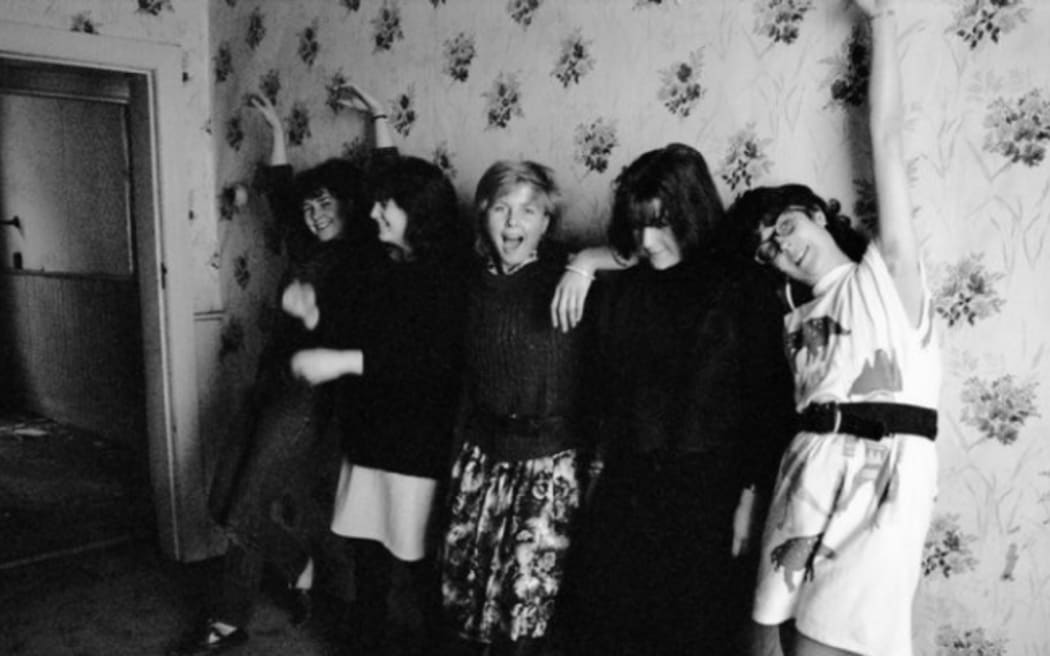
Look Blue Go Purple in Dunedin in 1985. Photo: audioculture.co.nz
A member of pioneering band Look Blue Go Purple says it is "wonderful and also quite crazy" to hear they are still inspiring people, 40 years on.
Francisca Griffin, Norma O'Malley, Lesley Paris, Denise Roughan and Kath Webster formed the band in the early 1980s. Signed to Flying Nun Records, they were an integral part of the 'second wave' of the Dunedin sound
Their 1991 album Compilation has now been named the winner of the Independent Music NZ Classic Record.
The trophy, part of the Taite Music Awards, is awarded to an album which is more than 20 years old and which continues to inspire New Zealanders today.
Founding member and guitarist Kath Webster told Music 101's Charlotte Ryan she and her bandmates were "blown away" by the news.
"We had no idea this was coming and we were all delighted with it."
The band never won any awards or got any official recognition in their heyday, she said.
It was "wonderful and also quite crazy" to know people were still listening to and talking about their music.
Compilation is made up of songs from the band's previous EPs - Bewitched (1985), LBGPEP2 (1986), and This is This (1988).
Their sound evolved over time, Webster said: "We were really open to new instruments and trying different things."

The band made "celebratory, fun songs", especially at the start, Kath Webster says. Photo: Kat Spears
Their earlier songs featured a lot of castanets and shakers, as well as singing without instruments. Webster did not even have an electric guitar when they started, so "it was very much learning as we went".
By the time they released their last EP, their sound was "much slicker", she said.
The band put out a lot of "celebratory, fun songs", but stayed away from love songs as they did not want to be cheesy, she said.
"We were all ... enjoying the Dunedin music scene and enjoying each other's company, so it was a really positive time and I think the music reflects that."
Webster said they never liked to be defined as an all-girl band - mostly because no one referred to all-male line-ups as all-boy bands or asked questions about what it was like to be a man in music.
However, having an all-women line-up was unusual for the time, she said, and it was "fantastic" to think they inspired other young women to pursue careers in music.
"I like to think it was opening some doors for people."

